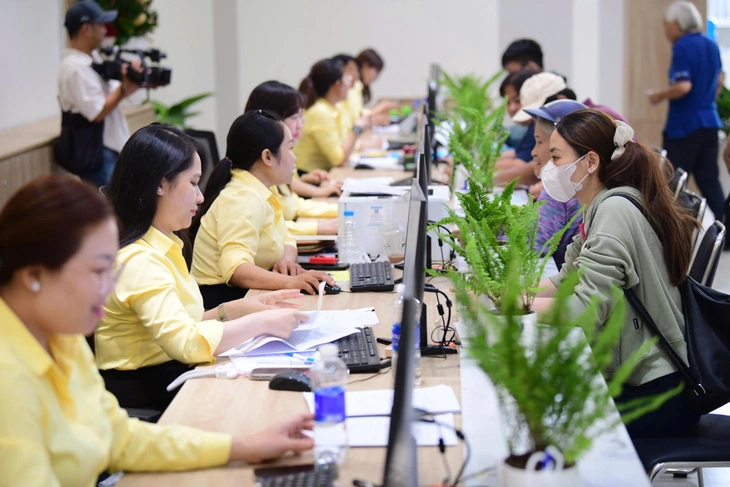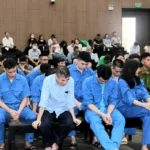In recent years, many people have often mentioned the concept of institutional bottlenecks in the country’s development process.
This expression might not be specific enough. The real bottleneck, deeper down, lies in thinking, specifically thinking about power – the object of institutions.
If institutions only stop at documents, codes, and decrees without a fundamental change in thinking, they only create new forms without bringing about new actions.
Institutions are the body, but thinking is the brain. Without changing thinking, institutions will just be an empty framework, even becoming a barrier to the very development they are expected to promote.
Specifically, for institutional reform to succeed, thinking about state power – the subject of institutional reform – must change. For a long time, power was often understood as a natural privilege for many officials, granted from the top down, from the State to the people.
This thinking creates a behavior of management where citizens and businesses must ask and receive, must obey, while officials have power because they can impose and command.
If that thinking does not change, all institutional reforms, even with many new laws, will only make the bureaucracy bloated with new procedures.
Conversely, if state power is viewed differently – power is a delegation from the people – then the relationship reverses.
Then power is no longer for suppression but for service; not to consolidate the official’s position but to enhance the satisfaction of businesses and the happiness and prosperity of the people.
A truly powerful official is not one whom citizens fear or businesses must lobby, but one who creates a positive influence on the market and social life. That power is associated with respect, not apprehension or fear. State power is granted by the people, not obtained by forcing the people to follow.
Looking back at the history of economic renovation since 1986 – Đổi Mới (Renovation) 1. The renovation succeeded then because there was a revolutionary change in thinking: changing the thinking about the economic actors of the country.
From viewing private businesses and free markets as exploitative, they began to be seen as essential drivers for development.
Without that crucial change, there would never have been the acceptance of a multi-sector economy, the unleashing of production potential, or the spectacular growth of the following three decades. This lesson shows: before institutional reform, there must be reform in thinking.
Even the change in thinking about the market and entrepreneurs – the basis of the 1986 Đổi Mới – was not simple.
To this day, the State still has to continue calling for the private sector to be considered a pillar of the economy. This shows that changing thinking is always a “wrenching” process, not easy.
Changing the perception of power will be similarly difficult, as those who benefit from the status quo are always a force resisting reform. But if changing the thinking about power is not clearly identified and pursued resolutely, institutional reform can hardly succeed.
Such changes in thinking are not only correct at the macro level but also present in many specific fields. Look at how society has changed its view of vulnerable groups.
At one time, sex workers were called “prostitutes,” seen as remnants of the old regime. When arrested, they were called by derogatory terms, people who needed to “recover their dignity.”
Only when perceptions changed, seeing them as people needing livelihoods and support, did policies become more humane and fair.
Similarly, drug users were once seen as criminals. When thinking changed, viewing them as victims needing medical and psychological help, did prevention policies become truly effective.
Education is also proof. For decades, reforms have continuously taken place, but society remains unsatisfied.
The deep reason is not a lack of resolutions or new programs, but a failure to change the thinking about the “product” of education.
If the goal is still to train obedient, compliant people, it inevitably leads to rote learning, formulaic writing, and a generation lacking critical thinking. Only when the perception changes – seeing the product as free, creative people who dare to think and question – will reform get to the root.
It must be emphasized: changing the thinking about power does not mean weakening the State.






